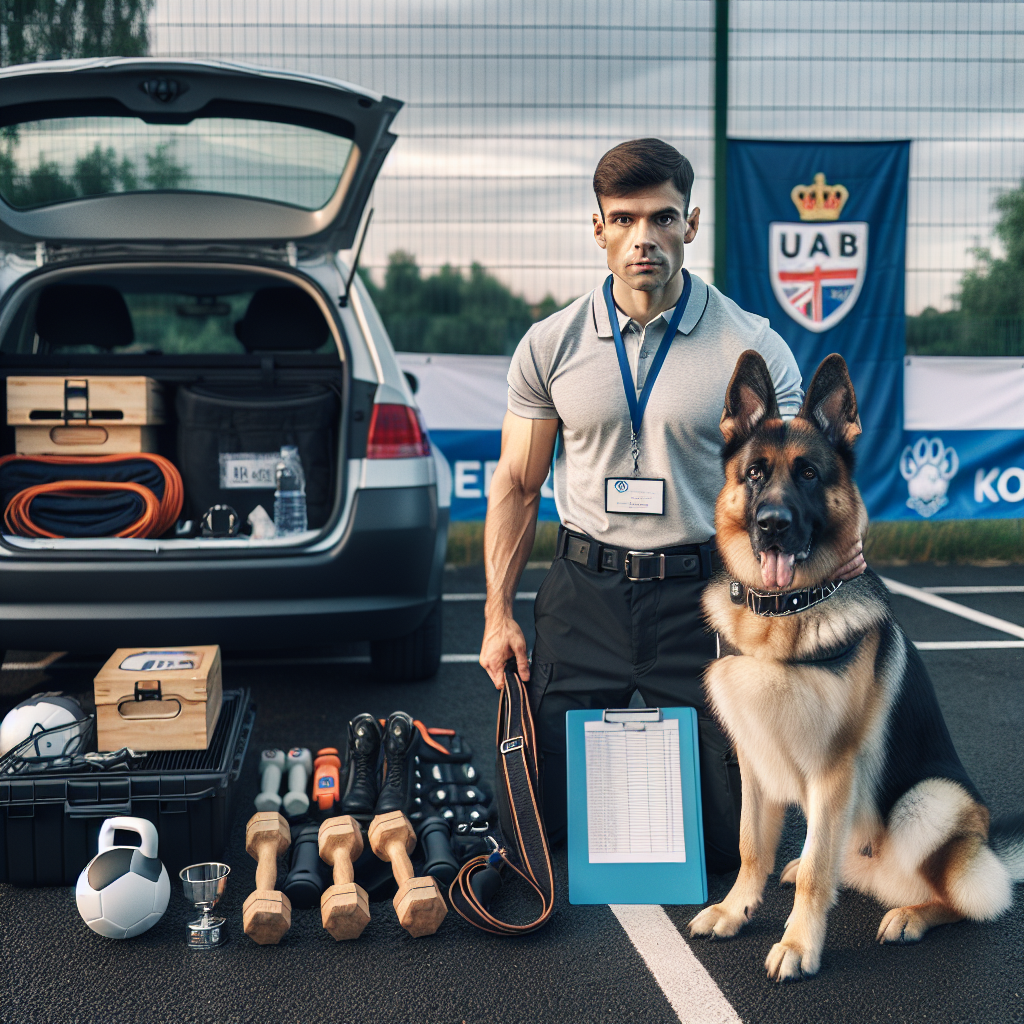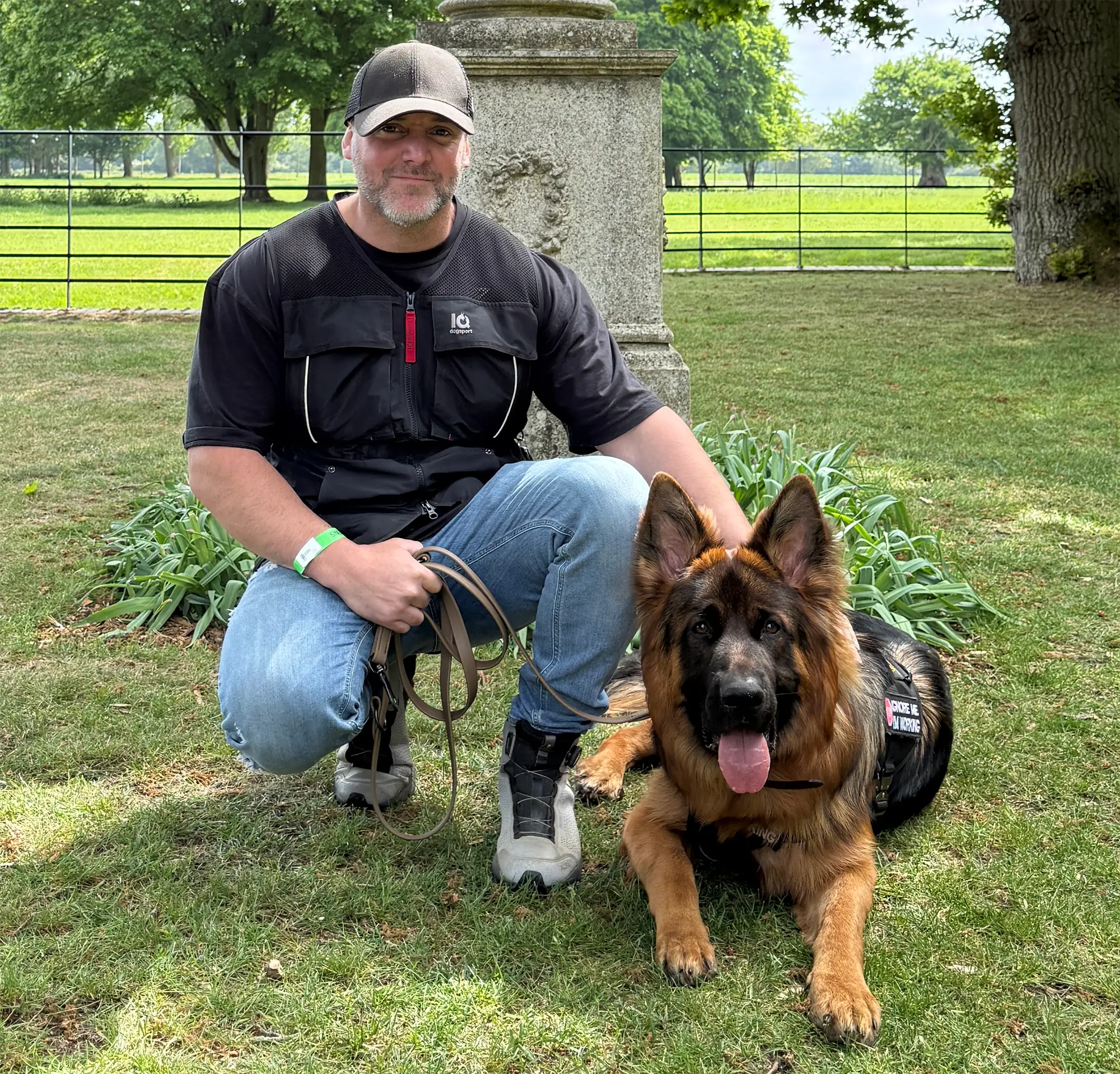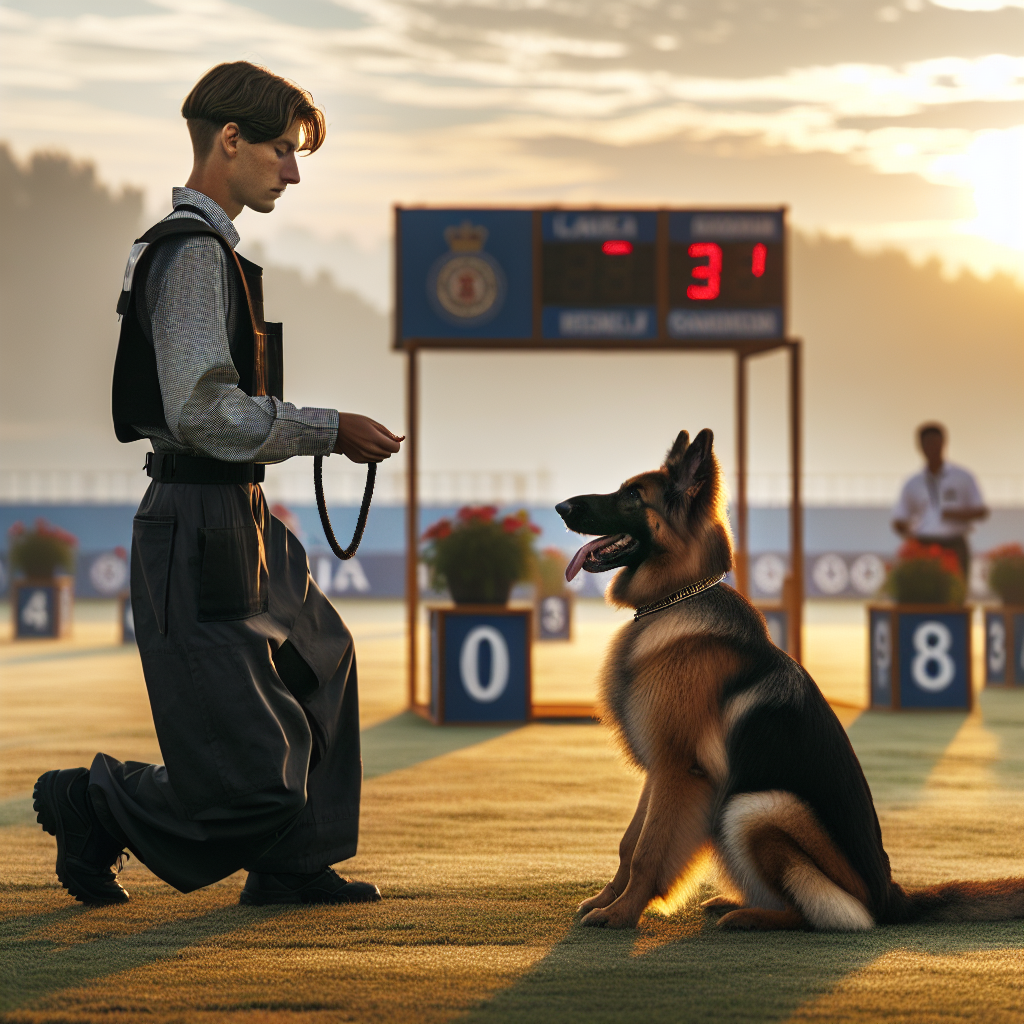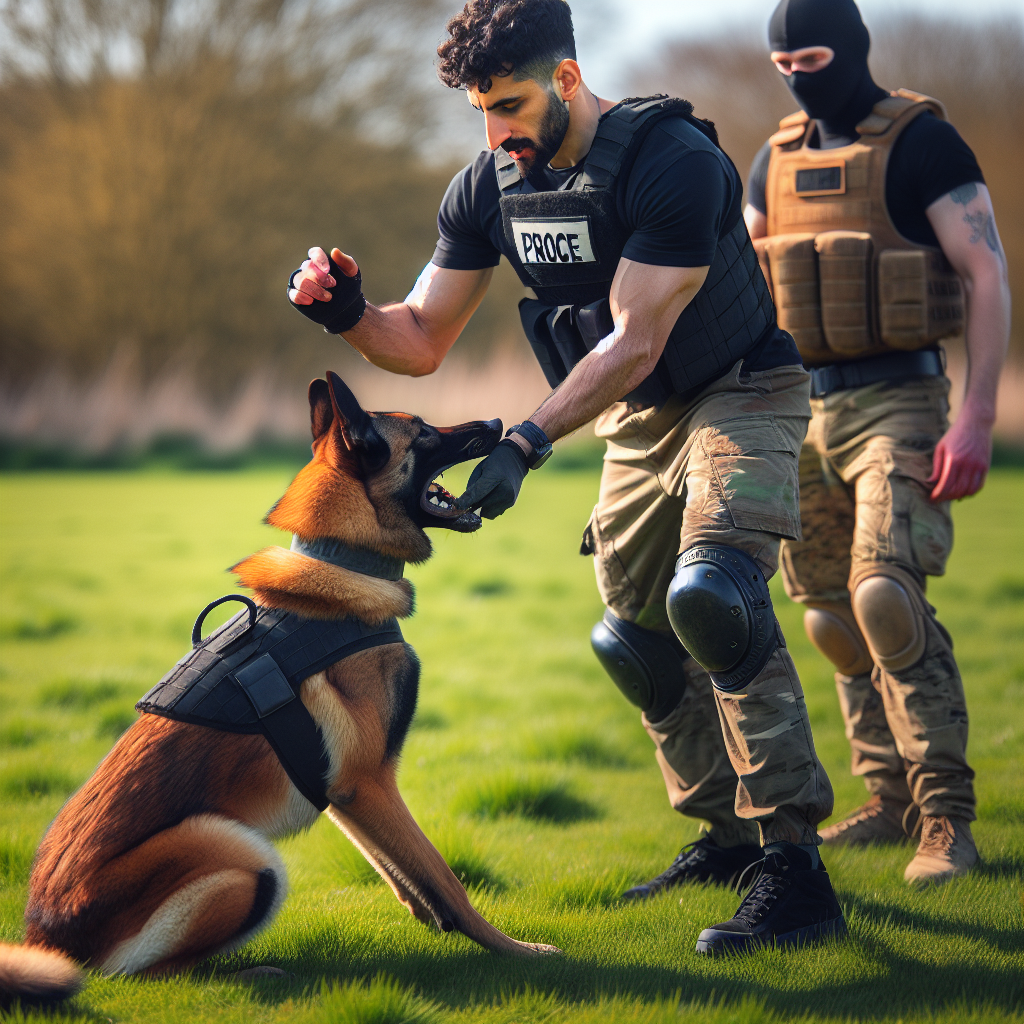IGP Trial Day Checklist

What Success Looks Like On Trial Day
Calm arrival. Clear communication. Confident performance. That is the standard we hold at Smart Dog Training. An organised plan turns pressure into focus and gives your dog the best chance to show trained behaviour. This IGP Trial Day Checklist brings structure to every phase so you do not leave points on the field for avoidable mistakes. Use the IGP Trial Day Checklist to remove guesswork and guide your decisions from the moment you wake up until the final score is read.
Our teams follow the Smart Method, which blends clarity, pressure and release, motivation, progression, and trust. Every step on this IGP Trial Day Checklist sits inside that method. If you train with a Smart Master Dog Trainer SMDT, this article will feel familiar because it mirrors how we prepare handlers and dogs for real life results.
The Smart Method Approach To Trial Readiness
Preparation is about more than packing gear. The Smart Method builds reliable behaviour through simple steps that compound. On trial day you need predictable routines, clean handling, and a dog that understands the job. Your IGP Trial Day Checklist must reflect the same pillars you use in training.
- Clarity. Use the same markers and commands you use in training. Keep cues consistent before and during each phase.
- Pressure and release. Guide fairly when allowed, then reward with a clear release. Your dog must understand accountability without conflict.
- Motivation. Use rewards to build positive emotion and engagement before work. Balance arousal with calm so performance stays steady.
- Progression. Step the warm up from easy to hard so the dog lands in the ring ready for the full picture.
- Trust. Maintain your bond. A trusting dog works with you, not around you, when pressure rises.
Everything below lives inside these five pillars from Smart Dog Training. That is what makes this IGP Trial Day Checklist both practical and reliable.
IGP Trial Day Checklist
Documents And Admin Essentials
- Registration papers and scorebook. Confirm entries, dog details, and tattoo or microchip information match what the judge will see.
- Passport or vaccination record if required by the host club. Check expiry dates well before trial day.
- Club membership card and any event confirmations. Print them. Take photos as a backup.
- Rulebook or a notes summary. You will not read it end to end at the venue, but having references helps you stay precise.
- Emergency contacts and your vet details. Store them in your phone and on paper in your bag.
- Payment method and small cash for incidentals.
Tick these items first on your IGP Trial Day Checklist. Missing paperwork can end your day before you start.
Dog Health And Welfare Checks
- Body check the night before and again in the morning. Look for cuts, hot spots, broken nails, or stiffness.
- Teeth and mouth. Make sure there is no soreness that could affect retrieves or grips.
- Paw care. Trim nails ahead of time. Pack paw balm for rough surfaces.
- Warm coat and cooling vest as needed for weather. Comfort supports performance.
- Crate comfort. Pad or mat your crate so the dog rests properly between phases.
Healthy dogs earn points. Put welfare at the top of your IGP Trial Day Checklist and you protect performance and ethics.
Equipment For Tracking
- Tracking line and harness that fit and are legal under rules. Test the fit in training.
- Tracking articles in a sealed bag. Keep scent pure and consistent with training.
- Flags if you are allowed to bring them for practice areas. Respect host club rules.
- Boots for ground conditions. Wet, rough, or frosty fields demand good footing.
- Treats or food used in your training plan if permitted by the event for practice warm ups away from the official track.
Place tracking gear near the top of your IGP Trial Day Checklist so you can load it first for an early report time.
Equipment For Obedience
- Flat collar and lead. Keep them clean and compliant.
- Dumbbells in competition weights for warm up. Use the same style you train with.
- Reward items. Ball on a string, tug, or food rewards for practice areas only. Store out of sight when not allowed.
- Place board or mat for building stillness before your turn.
- Water bowl for brief sips between reps during warm up.
Obedience points are detail points. Your IGP Trial Day Checklist should put these tools in a specific pocket so you grab them on cue without searching.
Equipment For Protection Phase
- Approved collar and lead for transport to and from the field.
- Muzzle if required for certain checks. Condition this well before trial day.
- Reward item for post routine reinforcement in a private area as allowed.
- Grip care items like a small towel and water to keep the mouth clean and comfortable.
Keep protection tools together in your IGP Trial Day Checklist so you can transition quickly from obedience to protection without clutter.
Handler Clothing And Personal Kit
- Weather ready layers. Waterproof top layer, breathable base layer, and spare socks.
- Quiet, grippy footwear. No squeaks. No slips.
- Stopwatch for timing routines in warm up zones.
- Notepad and pen for running orders and judge notes.
- Snacks, water, and electrolytes for you. Your dog needs a steady handler.
- First aid kit for you and a basic canine kit.
Your IGP Trial Day Checklist must serve the handler as well as the dog. Poor handling costs points just as fast as poor training.
Travel And Arrival Plan
Plan backward from your report time. Add buffer for traffic, parking, check in, and dog walks. A settled arrival supports a settled dog. Include the travel sequence in your IGP Trial Day Checklist so you repeat it for every event.
- Vehicle set up. Crate secured. Ventilation sorted. Water and bowls in reach.
- Arrival buffer. Aim to arrive early enough to walk the grounds and find rings, tracking staging, and toilets without rushing.
- Check in. Present documents, confirm your number, and write down the running order.
- Site map. Note practice areas and the quietest place to rest the dog.
- First walk. Let the dog toilet and decompress before any work.
Nutrition, Hydration, And Timing
Food timing is personal to the dog. Most teams feed a lighter portion well before work to avoid bloat and keep energy stable. Test your schedule in training, then copy it on trial day. Build a simple entry in your IGP Trial Day Checklist to keep it the same every time.
- Pre trial meal. Small and early. Add water to food if your dog drinks poorly.
- Water plan. Offer small sips across the morning. Avoid big gulps before running.
- Treats. Use high value rewards only in warm up zones and never where rules forbid food.
- Post phase recovery. Light snack after tracking. Water and a short walk after obedience. Calm praise after protection, then a proper meal when finished.
Warm Up Routines That Build Focus
Warm up is not about burning energy. It is about switching the brain on. At Smart Dog Training we build warm ups that reproduce pieces of the coming picture. Put a simple script in your IGP Trial Day Checklist so you do not overdo it.
- Tracking. A short focus track in a practice area if permitted. If not, rehearse nose target games and calm footstep rhythm on grass.
- Obedience. Two to three reps of heeling engagement. One to two reps of each key skill such as fronts, finishes, sits, downs, stands, and fetch mechanics. Stop while the dog wants more.
- Protection. Only what is allowed in the venue. Often this means no helper work. Rehearse drive capping, outs on a dead tug in your private area, and neutral walking near the field.
Lock the routine early. Your IGP Trial Day Checklist should prevent last minute changes that confuse the dog.
Ring Etiquette And Judge Interaction
Professional conduct wins respect and keeps your dog calm. A clean routine begins with clean manners. Add these points to your IGP Trial Day Checklist so you perform them without thinking.
- Report to the judge clearly with your number ready. Listen without interrupting.
- Handle the dog with quiet hands and neutral body language between exercises.
- Follow steward instructions. Move with purpose and do not rush.
- Keep rewards out of the ring and out of sight when not allowed.
- Leave the field on a loose lead with a calm dog. Celebrate away from the ring.
Managing Nerves And Mental Focus
Your dog reads you. If you are unsettled, you will over handle or miss cues. The Smart Method gives you anchors you can trust. Add a mental plan to your IGP Trial Day Checklist and use it before each phase.
- Box breath. Four count in, hold, four count out. Repeat until your shoulders drop.
- Cue script. Rehearse your first three cues quietly to yourself before you enter.
- One job rule. On the field, think only about the next step. Leave scoring to the judge.
- Reset protocol. If something goes wrong, exhale, reset posture, and continue. Finish the picture for the dog.
If you train with a Smart Master Dog Trainer SMDT, you will already have these habits. Your IGP Trial Day Checklist simply reminds you to apply them.
Common Mistakes And How Smart Prevents Them
- Late arrival. Fix it with a written travel plan and time buffers on your IGP Trial Day Checklist.
- Over warmed or under warmed dog. Solve it with a scripted warm up that you protect.
- Missing gear. Pack the night before using the IGP Trial Day Checklist and a visible load order.
- Handler chatter. Replace with quiet breathing and clear markers.
- Rule errors. Keep a short rules summary in your pocket and read it during breaks.
Day Of Timeline Example
Use this sample to build your own IGP Trial Day Checklist timeline. Adjust to your start time and the order of phases.
- Two hours before report. Light meal for the dog if this suits your plan. Pack the vehicle. Review documents.
- Ninety minutes before report. Travel. Stay calm. Hydrate.
- Arrival. Check in, walk the grounds, and let the dog toilet.
- Fifty minutes before tracking. Quiet crate rest with a blackout cover if needed.
- Thirty minutes before tracking. Short walk, then light focus games.
- Ten minutes before tracking. Line and harness on. Handler breath work.
- After tracking. Walk, water, and crate rest. Handler snack.
- Before obedience. Heeling engagement, retrieves rehearsal, and positions. Stop early.
- Before protection. Drive capping, neutral walking, and handler reset.
- After final phase. Cool down walk. Praise. Pack thoughtfully.
Make this routine your own and save it next to your IGP Trial Day Checklist so you can repeat success.
Field Craft And Micro Details That Earn Points
- Lead handling. No wrapping, no fidgeting. Fold it the same way each time.
- Posture. Tall, calm, and neutral. Your dog mirrors your frame.
- Transitions. Walk with purpose between exercises. Prepare your next cue while moving.
- Recovery. If the dog makes an error, do not rush. Breathe, reset, and finish clean.
Small behaviours compound into big scores. This is why Smart Dog Training places such emphasis on calm handling on the IGP Trial Day Checklist.
Weather And Surface Adjustments
Ground and climate can change the picture. Add a section to your IGP Trial Day Checklist that covers seasonal plans.
- Heat. Shade, cooling vest, and shorter warm ups. Offer frequent small sips of water.
- Cold. Longer warm ups with movement. Keep the dog warm between phases.
- Wet turf. Slower pace in heeling. Extra care on jumps. Dry the dog before the next phase.
- Hard ground. Paw balm and shorter practice throws. Protect joints with smart reps.
Communication And Team Support
Have one calm person who can hold your dog, manage timing, and protect your space. Your support person should carry a copy of your IGP Trial Day Checklist so they can prompt you without noise. If you work within the Smart Dog Training network, your coach will fill this role and keep you on schedule.
Ready to turn your dog’s behaviour around? Book a Free Assessment and connect with a certified Smart Master Dog Trainer - available across the UK.
Post Trial Debrief And Recovery
Great teams learn fast. After the final phase, cool the dog down, offer water, and walk off any tension. When scores are done, reward your dog and end the day on a positive note. Later, sit with your IGP Trial Day Checklist and record what worked and what needs attention. This is how you convert one result into long term progress.
- Record scores and judge comments for each phase.
- Note any handling habits that crept in under pressure.
- List equipment changes or comfort adjustments for next time.
- Update your training plan with your coach at Smart Dog Training.
FAQs: IGP Trial Day Checklist
What should be on my IGP Trial Day Checklist for documents?
Include registration papers, scorebook, vaccination records if required, membership card, event confirmations, emergency contacts, and a short rules summary. Store both paper and digital copies so you have a backup.
How early should I arrive using the IGP Trial Day Checklist plan?
Arrive with enough buffer to check in, walk the grounds, and settle your dog without rushing. For most teams this is at least one hour before the first phase. Build your own buffer and keep it the same at every event.
What warm up should my IGP Trial Day Checklist include?
Short and targeted. Two or three engagement reps for heeling, single reps of key positions, limited retrieves rehearsal, and calm focus for protection. Stop while your dog still wants more. Your goal is a switched on brain, not a tired body.
How do I manage nerves with the IGP Trial Day Checklist?
Use a mental script. Breathe in a steady pattern, speak your first cues quietly to yourself, and follow the one job rule. Focus only on the next step. The Smart Method gives you anchors so you can keep the routine the same under pressure.
What gear belongs on the IGP Trial Day Checklist for protection?
Approved collar and lead for field movement, a muzzle if the event requires checks, a reward item for private reinforcement after the routine, and simple grip care like a towel and water. Keep these items grouped for quick transitions.
When should I feed my dog on the IGP Trial Day Checklist?
Feed a small portion well before work so the stomach is settled. Offer small sips of water across the morning. Test this schedule during training days and copy it for the trial. Consistency supports performance.
Can a Smart trainer review my IGP Trial Day Checklist?
Yes. Smart Dog Training coaches build custom lists for each team and refine them through rehearsals. Working with a Smart Master Dog Trainer SMDT helps you match the checklist to your dog, the venue, and your goals.
Conclusion: Put Structure On Your Side
The IGP Trial Day Checklist is your map. It captures the Smart Method in action so you arrive ready, handle cleanly, and finish strong. Pack your gear the night before. Script your warm up. Protect your dog’s welfare. Respect the judge and the field. Then trust your training and enjoy the moment.
Your dog deserves training that truly works. With certified Smart Master Dog Trainers SMDTs nationwide, you'll get proven results backed by the UK's most trusted dog training network. Find a Trainer Near You



